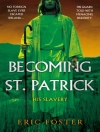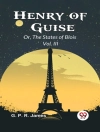In ‚That Girl Montana, ‚ Marah Ellis Ryan crafts an evocative narrative set against the backdrop of the American West, intertwining themes of identity, freedom, and resilience. The novel employs a rich, descriptive literary style that immerses the reader in the rugged landscapes and cultural dynamics of Montana during the early 20th century. Ryan’s exploration of her protagonist’s journey, a spirited young woman navigating societal expectations and personal aspirations, reflects broader themes of self-discovery and empowerment that resonate within the context of American regional literature of the time. Marah Ellis Ryan, a prominent figure in early 20th-century American literature, was known for her poignant portrayals of women’s lives and struggles. Her firsthand experiences living in the West informed her writing, imbuing it with authenticity and depth. Ryan’s passion for social justice and advocacy for women’s rights is evident throughout her works, and ‚That Girl Montana‘ serves as a testament to her belief in the strength and agency of women in a transforming society. This novel is highly recommended for readers interested in historical fiction that captures the complexities of female empowerment amid cultural shifts. Ryan’s lyrical prose and insightful character development provide an enriching literary experience, encouraging readers to reflect on the timeless themes of determination and self-identity.
Über den Autor
Marah Ellis Ryan (1860-1934) was a versatile and prolific American author, actress, and activist, whose narrative craft was illustriously showcased in her 1901 novel, ‚That Girl Montana.‘ Ryan’s literary oeuvre unfurled across several genres, embodying the romantic spirit of the American West with a particular empathy towards Native American cultures. Predominantly known for her empathetic portrayal of Native American life, her writing style is marked by a richly descriptive voice and an engaging, dramatic narrative technique. Ryan took a progressive stance for her era, often highlighting the strength and resilience of her female protagonists. ‚That Girl Montana‘ remains a significant work, being emblematic of her ability to weave poignant tales that fuse romance, adventure, and a deep appreciation for the American landscape. Born in Pennsylvania, Ryan’s work was a part of the movements that sought to romanticize and preserve the rapidly vanishing frontier life of the late 19th and early 20th centuries. In her time, she was recognized both for her literary contributions and her spirited dedication to the arts. While not as widely read today, scholars of Western American literature consider her work an important part of the cultural tapestry of the United States, reflecting the complex interactions and narratives that forged the nation’s identity during a period of significant change and expansion.












